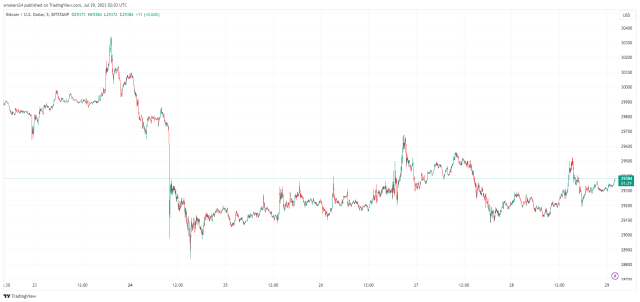The Peruvian Presidency has issued a new decree to address growing concerns about cryptocurrency-related money laundering and terrorist financing. The decree requires all cryptocurrency exchanges operating in the nation to abide by anti-money laundering (AML) laws. With this development, the Peruvian government has taken a significant step towards regulating the cryptocurrency ecosystem and protecting its financial system from unsanctioned activities.
Service Providers’ Mandatory Disclosure of Crypto Holdings
The decree mandates that virtual asset service providers—which encompass private citizens and businesses with operations in Peru—submit data to the Financial Intelligence Unit (UIF-Peru). Information gathering, analysis, and transmission to identify money laundering and terrorism financing operations fall under the purview of the UIF-Peru.
Peru Cracks Down on Crypto: New Rules Aim for Transparency and Security
Peruvian authorities are tightening regulations on cryptocurrency activities, requiring Virtual Asset Service Providers (VASPs) like exchanges to follow specific guidelines. These VASPs include entities performing activities like exchanging crypto for fiat currency, transferring virtual assets, or offering financial services related to crypto transactions.
The new decree emphasizes adherence to Financial Action Task Force (FATF) recommendations, particularly the “travel rule.” This rule mandates VASPs to implement Know Your Customer (KYC) protocols to collect and share user information. This aims to increase transparency and combat illegal activities in the Peruvian crypto market.
While the decree is in effect, detailed guidelines by the Financial Intelligence Unit for preventing money laundering and terrorism financing through crypto are still forthcoming. These guidelines will further clarify the obligations and responsibilities of VASPs operating in Peru.
The New Rules Are Not Without Disputes
Despite the government’s aim to tackle cryptocurrency risks, the new decree has sparked controversy. The Blockchain & DLT Association of Peru (ABPE), comprising blockchain technology and Bitcoin supporters, expresses dissatisfaction. They argue that the proposal’s drafting should have involved the broader Peruvian community. The ABPE urges Congress to engage with cryptocurrency ecosystem members to ensure inclusive regulatory discussions.

Peru Tightens Crypto Controls: Balancing Innovation and Risk
As cryptocurrencies grow globally, their decentralized and anonymous nature creates challenges for governments. Peru’s new law mandating AML regulations for crypto exchanges reflects a global trend of balancing innovation with financial system protection.
Industry players await the impact of these stricter rules on the Peruvian crypto landscape. However, the decree marks a significant step toward combating financial crime and safeguarding the economy from potential crypto risks.

























